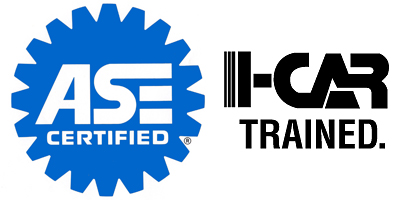Your car insurance company’s primary job is to cover the cost of vehicle repairs… when it becomes damaged from a covered incident. More and more frequently, this entails your insurance company paying the repairer…directly. What many covered drivers don’t fully realize is that they have the right to choose any auto body shop (with rare exception) and often…whether you choose to have any repairs done at all. In many states, including California, it’s actually illegal for your insurance company to tell you that you must use a particular repairer that they have a relationship with. It’s called “steering”…the act of directing you to or away from a specific repair shop…or requiring that repairs be made by a specific repair shop.
By design, car insurance must pay for all repair work that your car needs resulting from a covered accident…including and especially the repair of vital parts affecting the vehicle’s ability to be driven…as well as any body damage. Despite the fact that an insurance company may want to minimize their financial losses, what they can’t take into consideration when paying a claim are that you may wish:
- to do your own repairs
- to use parts that aren’t as nice as the damaged ones (used replacement part are permissible, but usually must be in at least as good of condition as prior to the accident).
- to not fix your car at all
Here are some limiting factors to bear in mind when considering doing any repairs yourself:
- If you have a car loan not yet paid off…the bank owns your car…and they can (usually will) decide to fix it. …restoring it to its previous condition…because a damaged car has less collateral value. In fact, you’re legally required to report damages to the vehicle to both your insurance and the bank if you don’t have it paid off.
- If the car is deemed a total loss, but you want to do your own repairs…you must buy it back from the insurance company. This doesn’t even sound good at first…and it usually isn’t worth considering in most situations.
- You Must Make a Claim & Pay Your Deductible. It may not be entirely true that one single accident can raise your rates, every claim still goes on record. Weighing the value of gaining an insurance claim check…against the ultimate cost of making an insurance claim is worth taking a few minutes to ponder.
Be sure to talk to your trusted body shop repairer to consider the pros and cons. But remember: your insurance company’s obligation is to pay you for all the damage done to your vehicle. HOW you spend that money…is up to you.


